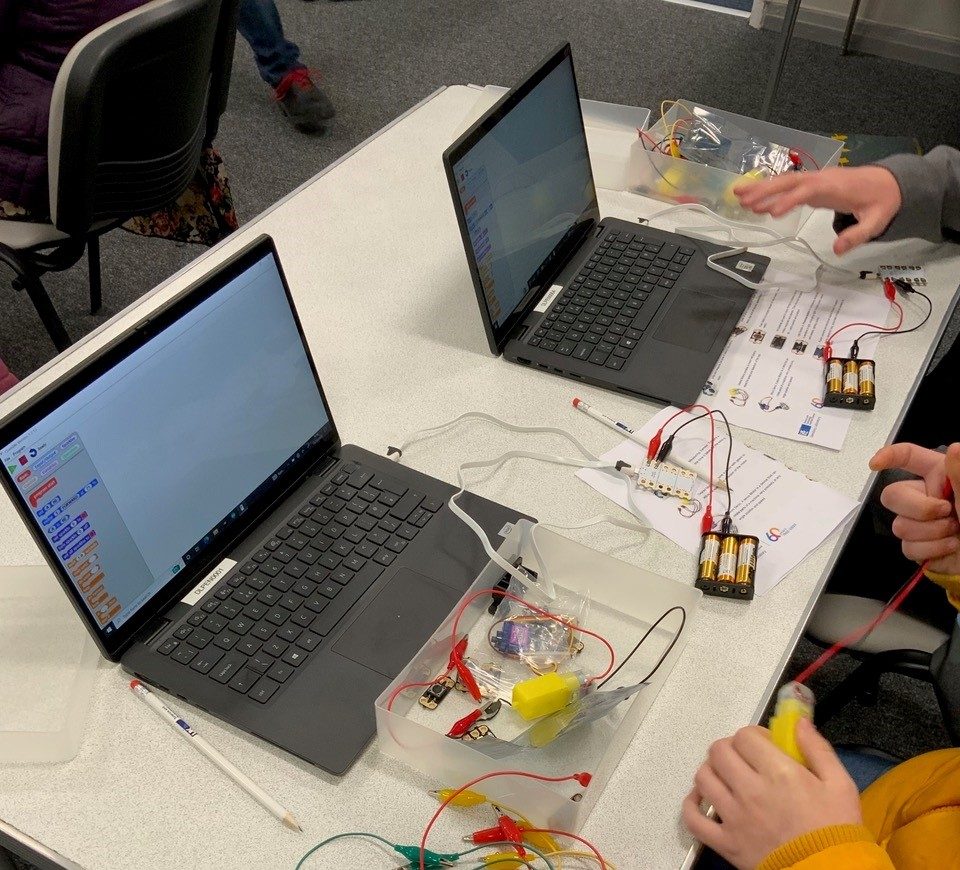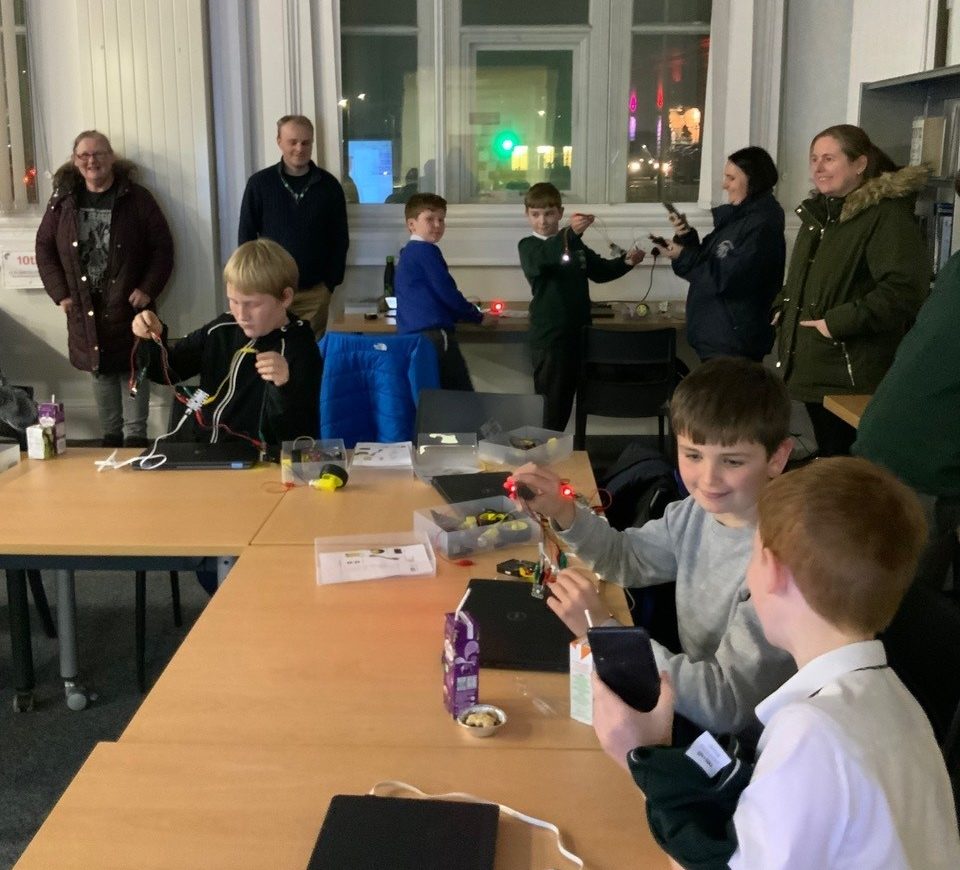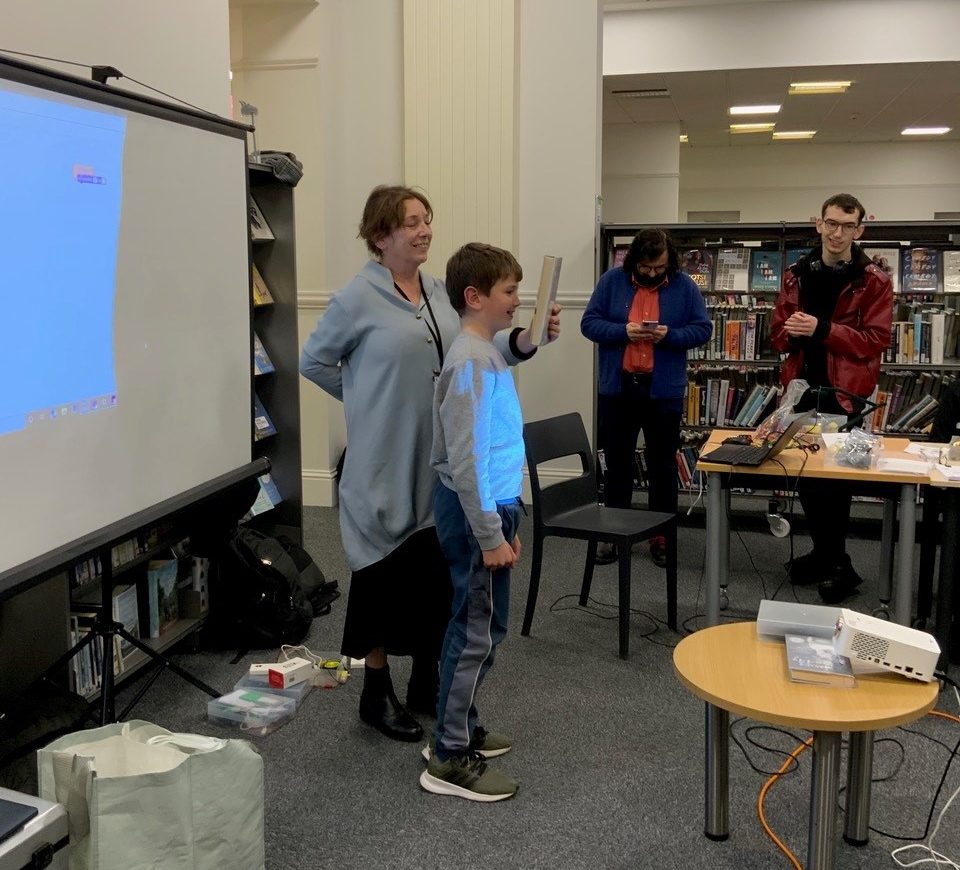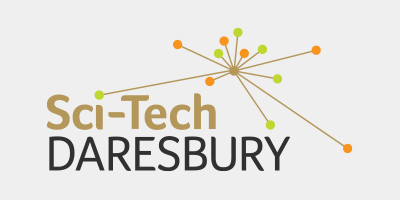March 8, 2024
Sparking the flame of creativity in Halton
UK Research and Innovation’s (UKRI) presence in the North West of England is spearheaded by the Science & Technology Facility Council’s Daresbury Laboratory at Sci-Tech Daresbury.
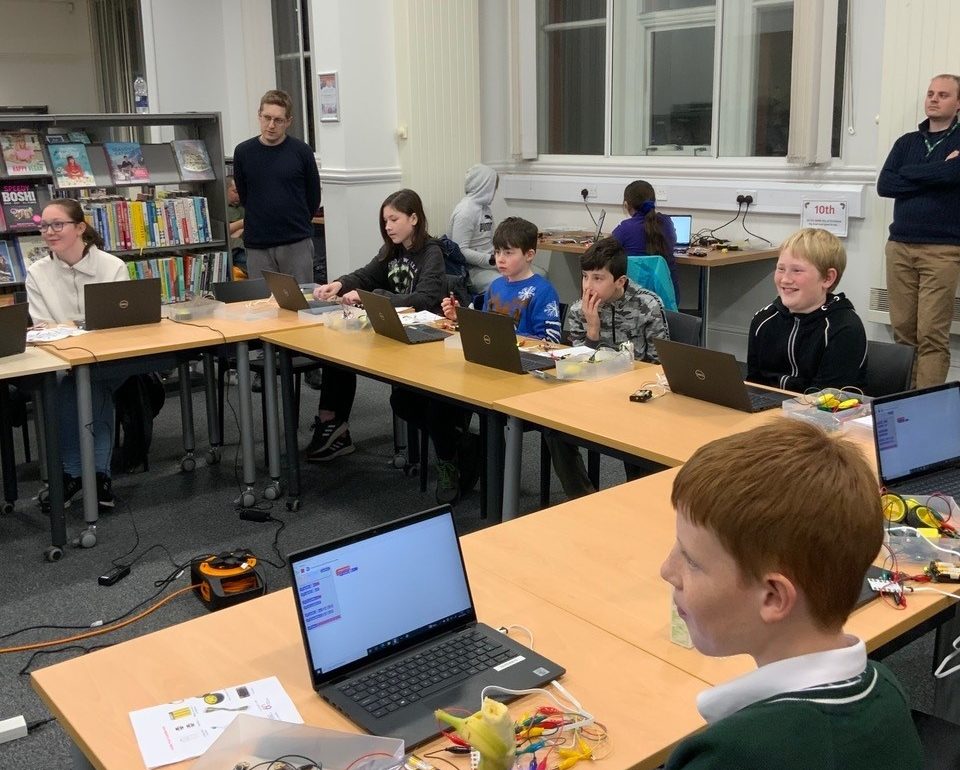
UK Research and Innovation’s (UKRI) presence in the North West of England is spearheaded by the Science & Technology Facility Council’s Daresbury Laboratory in Sci-Tech Daresbury, a national science and technology campus in the Liverpool City Region.
Daresbury Laboratory has over 60 years’ heritage as a world leader in computing and advanced digital technologies, particle accelerator technology and engineering. It is home to various facilities, including the Hartree Centre. This helps businesses to explore and adopt supercomputing, data science, and artificial intelligence technologies for productivity, innovation and growth.
Ongoing growth of science and technology
The ongoing growth of science and technology is pivotal to ensure the future economic, social and environmental wellbeing of the UK. Achieving this is of course as much dependent on the development of the innovative companies of the present as well as the scientists in the decades to come who will take up careers at Sci-Tech Daresbury and elsewhere. With over 50 primary schools in Halton on the doorstep, one of STFC’s longstanding aims has been inspiring local young people into careers in the exciting sectors that can be found on the campus.
Indeed, the presence of such a beacon of science and technology nearby offers Halton residents the opportunity to become involved in the exciting industries and technologies of tomorrow. In this area of such proud industrial heritage, it is hoped that, with support from STFC, this pride will translate into the exciting STEM that is being pioneered at Sci-Tech Daresbury.
Bringing opportunities to life
By bringing opportunities to life, STFC hopes to showcase the vast array of opportunities available to young people and broaden aspirations for the local community, demonstrating that careers in or supporting STEM are for everybody.
Daresbury Laboratory’s Public Engagement Team have been working with teachers and students across Halton to help make this vision a reality.
The programme
As coding and electrical engineering are at the heart of a significant amount of the work carried out at Daresbury Laboratory, these topics were chosen as the basis of an education programme for local schools, which would enable children to get an insight into the work done at Daresbury Laboratory.
Through this programme, Gina Czarnecki, public engagement officer for STFC (Halton), has been supporting teachers to encourage children to get into coding earl in their IT education. Using the Redfern Electronics built Crumble coding interface, which is used to teach coding and design engineering, primary school classes across Halton have been able to work with sensors and electronic circuits to make their own responsive devices and learn about different areas of STEM through creativity - the act of making.
Evolving Activities
Gina has worked with teachers to co-develop activities which are constantly evolving depending on how the children react, what they want to learn, how teachers feel about the curriculum, and knowledge of the local communities.
Before any sessions were delivered, three local teacher focus groups were held which allowed the Daresbury Laboratory public engagement team to get a clear picture of the local communities and their needs, along with the current teaching level and what support teachers felt they required.
Lack of resources
Several issues in the ability of schools to deliver comprehensive computing lessons were identified along the way, such as low levels of funding, lack of equipment, and lack of computing-confident staff. The public engagement team has sought to remedy this, through sourcing and providing equipment and resources for teachers.
Prior to delivery of the sessions in schools, Gina delivered demonstrations to build the confidence of teachers who may not necessarily have IT knowledge or support beyond the usual, day-to-day applications of technology.
Easy to use
It was also key that the interface was easy to use, so that teachers could be confident in supporting the children going forwards and continue the legacy of the work carried out following the completion of Gina’s activity. The schools are equipped with the tools and knowledge they need to keep the sessions running, and resources to share with other teachers.
Sessions were initially delivered across several weeks as part of computing and DT lessons, each interaction building on the last so that groups of students could continually expand their knowledge. Schools can loan Crumble coding class sets for free, which contain 16-18 individual kits and printed instructions for workshops.
These sessions can be delivered in schools or at Sci-Tech Daresbury, and include design, technology and circuitry while encouraging creative thinking and imagination. To address the problem of gender imbalance within STEM, the programme has been developed to be non-gendered and to appeal to a wide base, with creative practice at the forefront.
Subsequently several schools have signed up to host their own after school code clubs after participating in the coding classes, and children who have thrived in sessions have been appointed as ‘STEM ambassadors’ for their schools and are now using their roles to share knowledge with younger students.
Through the programme, Sci-Tech Daresbury has already reached 50% of Halton primary schools. Since December 2022, the project has reached over two thousand young people and their teachers, mainly years three to six, several involving repeat interactions – pivotal to ensuring the program achieves long term benefits.
STFC provide support to local education providers Mako Create
STFC staff have also provided support to local education providers Mako Create, enabling them to provide a free after school Coding Club for young people in Halton aged 10-16. These coding clubs are funded by Halton Borough Council and not only fulfil a need for after school activities but create opportunities for young people to access technology and expertise that will enable them to engage with computer coding activities in a social environment.
To ensure that children from all backgrounds can access the sessions, care has been taken to provide coding clubs at easy-to-reach locations.
An increase in work experience
Through the provision of additional support in the borough, STFC has already seen an increase in work experience applicants from the local borough and it is confident that - as students who have participated in Crumble coding classes or young people who have attended Coding Clubs move into Key Stage 3 - this will only increase.
Opportunities to discover careers in STEM
Overall, it is hoped that this activity will address some of the inequality in 'science capital’ faced by many young people in the area – that is, the proximity to science within a young person’s life, such as opportunities to visit discovery centres, frequency of science activities outside of school, and family members with careers in STEM. To make even more of a difference, STFC has simplified its work experience application process, and provides guidance to teachers and students on how to fill out an application depending on which STEM area a student wishes to investigate further.
The impact the outreach project has had is significant as shown by the feedback received*:
- Out of 160 pupil responses 85% said that they enjoyed coding more following sessions with STFC
- Out of 109 pupil responses 87% said that they had learned more about everyday things that use coding
- Out of 152 pupil responses 86% said that they would do more coding in their own time
Looking ahead
Looking ahead, Gina and her team hope to develop strategies to increase engagement with secondary schools, including a suite of activities for after-school provision to help influence Years 7 and 8 before they choose their GCSE subjects.
Reflecting on her work so far, Gina Czarnecki said, “I have had first-hand experience of young people who have 'self-cancelled' from possible futures in coding, computing and engineering by the time they were nine. My focus has been to try to encourage children that they can do this and that these subjects can be fun, relevant to their lives and achievable. I'm keen to see this resource grow in Halton so that digital innovation and creative science can flourish here well into the next decade and beyond.”
To find out more please contact the Daresbury Laboratory Public Engagement team public.engagemet.dl@stfc.ac.uk.
*Figures include interactions at Daresbury Open Week
